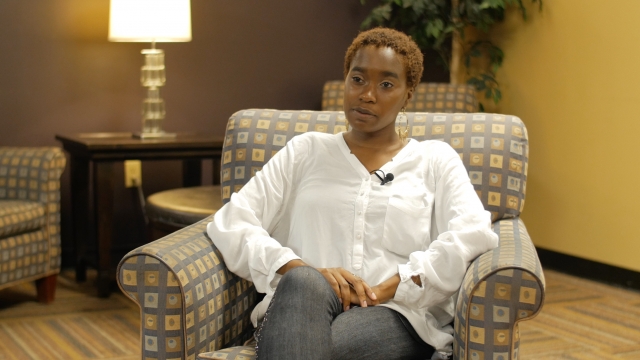"I'm tired of having to explain Islam to people, I'm tired of having to explain why black lives matter to people. I'm not going to sit here and be like 'Muslims don't kill people, we're nice,' because I've been doing that my whole life, and I still get the same B.S.," Ameerah Sanders said.
Muslims in America are diverse. But black Muslims are largely left out of the conversation.
"Black kids do not believe me when I say I'm black, and at the mosque when it's time to pray, sisters slide their feet away from mine," Mikel Aki'lah said.
It's estimated that black Muslims make up as much as a third of all Muslims in the U.S. And about 40 percent of American-born Muslims are black — more than any other race.
The Muslim population in the U.S. overall is pretty small — but growing.
"I get a lot of people that are kind of so ingrained in their culture and their biases that interacting with black Muslims is something they don't usually do," Sanders said.
"We're for democracy, and everyone here is equal, and you're free to do whatever you want, but that's not necessarily always the case," Malikah Shabazz told Mashable.
SEE MORE: The Vast Majority Of Terror Victims Are Muslim
Even many American-based Muslim advocacy groups inadvertently focus on immigrants and Arab Muslims living in the U.S.
"Black Muslims that I've spoken with have felt like Muslims of other races don't want to engage with black Muslims ... so I'd say we have a lot to work on in terms of race and getting over cultural boundaries," Sanders said.
When it comes to identity — almost half of American Muslims see themselves as Muslim first, American second. That's pretty common for other religious groups in the U.S.
"Not only being a Muslim, not only being a Muslim-American, being Somali, being black, being young — there's a lot of identities that you have to reconcile," Somali American Youth Foundation Executive Director Mohamed Hussein.
"Although Islam and being African-American are very big parts of my identity, I think we need to stop and realize that that's not all there is to me," Sanders said.
"People get so hung up on what they think they know that they fail to see the whole person, and honestly, that's probably the biggest thing that's like a loss on both sides," Sanders said.
This video includes an image from Getty Images and clips from Voice of America, USA Today, Young Muslim Association, Mashable, CBS, Atlanta Masjid of Al-Islam, New York City Student Union and Deen Media Center. Music provided courtesy of APM Music.


